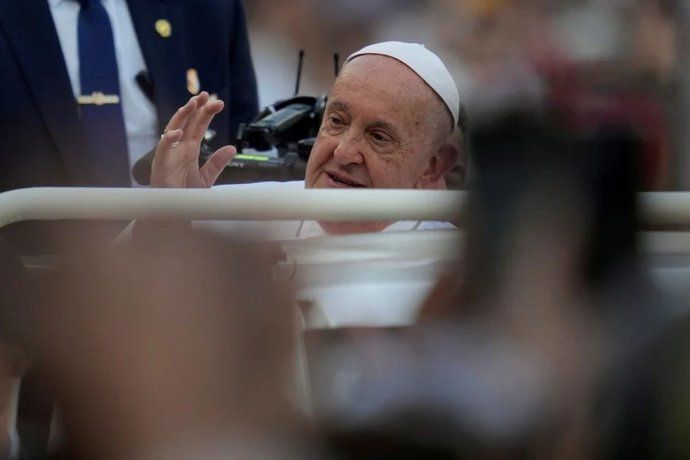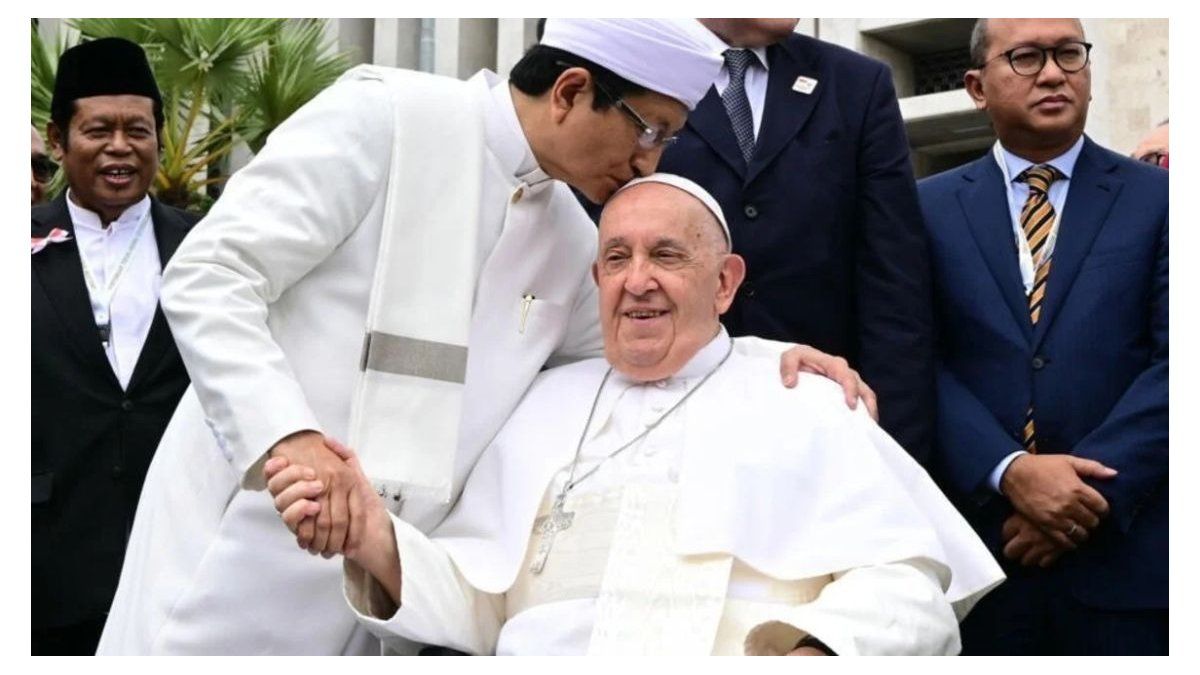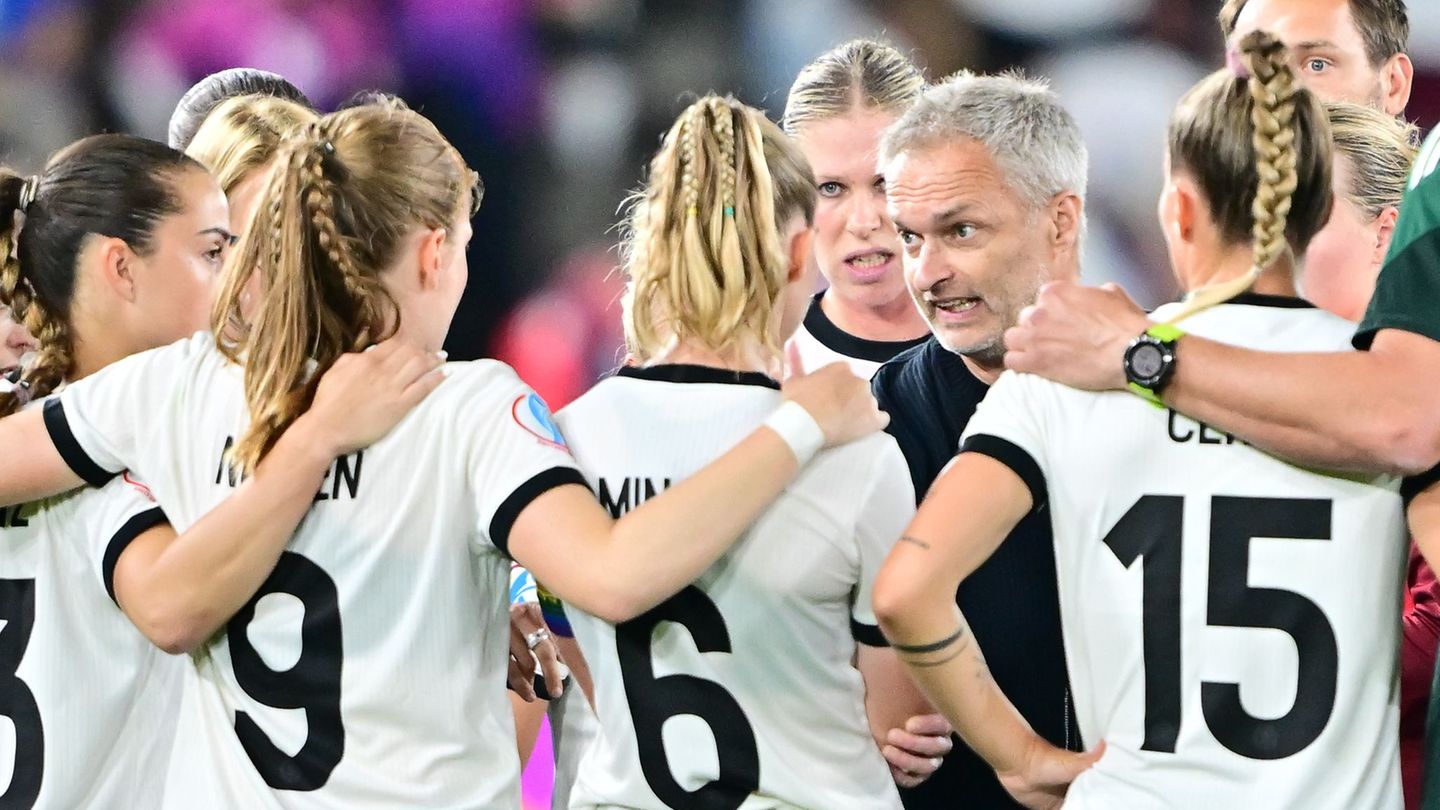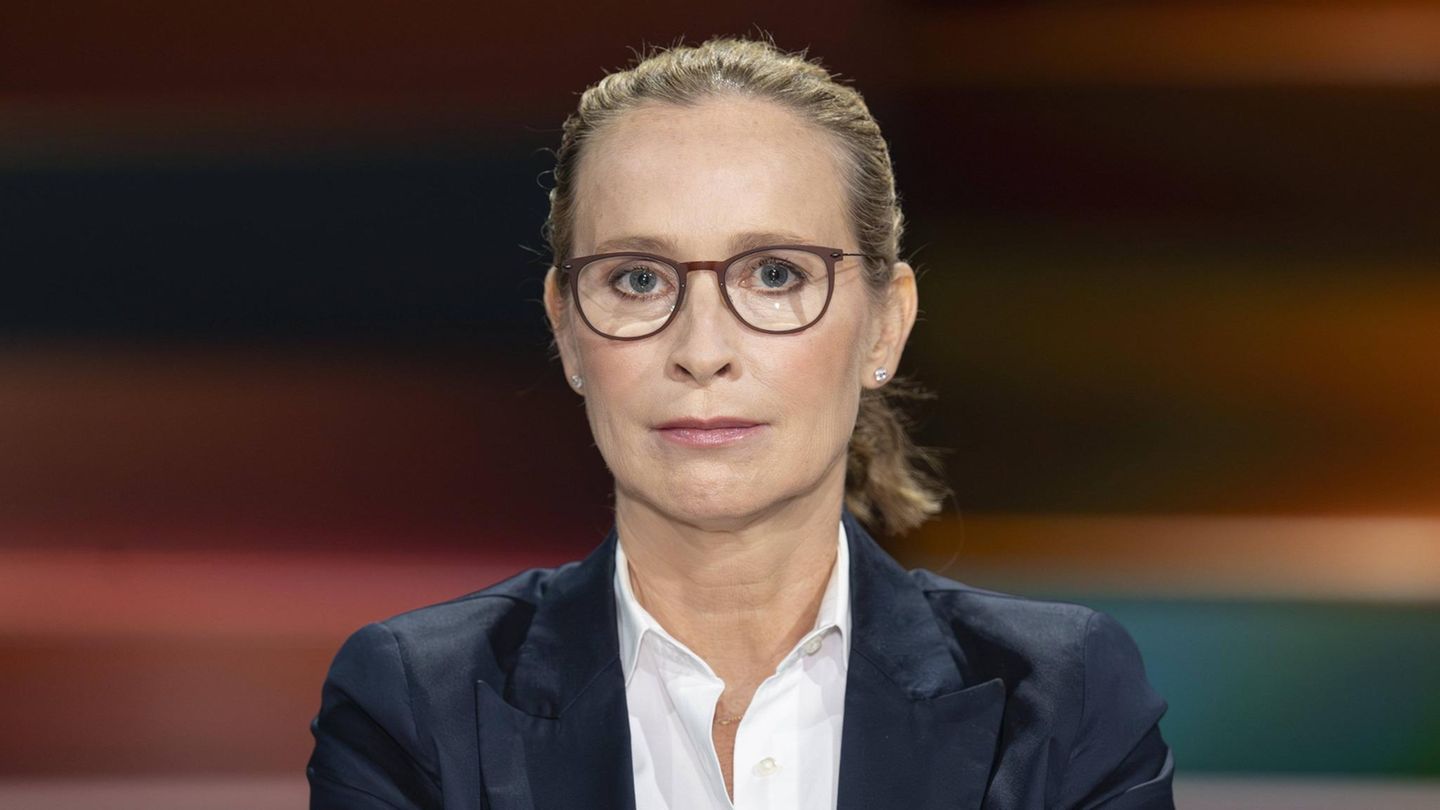Thousands of believers moved to seeThe Argentine Jesuit
By air, sea or on foot, pilgrims traveled to the capital to see the PopeIn Port Moresby, the once dusty streets were tidied up and decorated with the yellow and white pennants of the Holy See.
Papua New Guinea is one of the most impoverished and unstable states in the Pacific, the scene of recurring tribal violence. In January, anti-government protests against lower wages led to deadly riots. During his visit, Jorge Bergoglio plans to meet with bishops, homeless children and celebrate a mass before tens of thousands of faithful.
pope francis indonesia 2.jpg
The Catholic community at the Indonesian stadium.
Courtesy of Reuters
Among the thousands who flocked to the capital, a group of 43 pilgrims walked more than 200 km from Morobe on the northern coast, through the jungle and the dangerous central mountain range, the Papua New Guinea Bishops’ Conference said. For others, the journey was less arduous but just as momentous. Sophie Balbal, from the island of New Britain in the northeast of the country, came to the capital representing a group of mothers.
“I’m not one of the leaders but I was chosen to come,” she told AFP, visibly moved. “It’s the first time in my life that I’ve taken a plane and come to Port Moresby.” “Whatever the message is, I will do my best to pass it on to my fellow mothers, to all the mothers in our parish,” she added.
A complicated mission for the Pope
Before Francis, Papua New Guinea was visited by another pope, John Paul II, in 1984 and 1995. About 98% of the population is Christian, mostly Protestant, although mixed with numerous indigenous rites. Among Christians, 25% are Catholic.
Prime Minister James Marape, the son of a Seventh-day Adventist preacher who rarely answers his phone on Saturday, the Sabbath, is an example of this mix. Marape is also a chief of the Huli people, one of the largest tribes in the Papua New Guinea Highlands. Sometimes decked out in his people’s ceremonial garb, including an iconic feathered wig, the leader says Christianity is the religion that best defines his country.
The Constitution establishes that “Noble Christian traditions and principles” must be protected. The Pope’s visit could Relaunching the debate on the revision of the Magna Carta, to make Papua New Guinea an officially Christian state.
pope francis indonesia 1.jpg

During his visit, Jorge Bergoglio is expected to meet with bishops, homeless children and celebrate a mass in front of tens of thousands of faithful.
Courtesy of Reuters
However, The initiative could prove complicatedobservers warn, because choosing one church from among all the existing confessions could spark tensions between Christian groups. The pope’s trip could also speed up the first canonisation of a Papuan, Peter Torot, a missionary killed by the Japanese occupation army during World War II.
For many residents, churches of all denominations alleviate the shortcomings of the state by providing health care, education and social assistance.
The Pope could also reiterate his Calls for the defense of the environmentin a country marked by deforestation.
A great physical challenge
Francis has visited Muslim-majority countries several timessuch as Iraq, Bahrain, Turkey or Morocco, and in 2019 he signed a document on human fraternity in Abu Dhabi with the Grand Imam of Al Azhar University. This is the The Argentine Pope’s 45th trip abroadIt was initially scheduled for 2020 but was postponed due to the pandemic.
The leader of the 1.3 billion Catholics, who will turn 88 in December, underwent a major reshuffle in 2023 abdominal surgery and has suffered several respiratory infections. He can only move around in a wheelchair or with the help of a cane. Despite the physical effort that this tour will entail, with 16 speeches planned, seven flights and up to eight hours of time differencethe Vatican said that he will be accompanied by the same medical team as until now, consisting of a doctor and two nurses.
How your journey continues
Francis’ tour, the longest and most distant of his papacy, will continue in East Timor from 9 to 11 September and in Singapore from 11 to 13 September.
Source: Ambito




